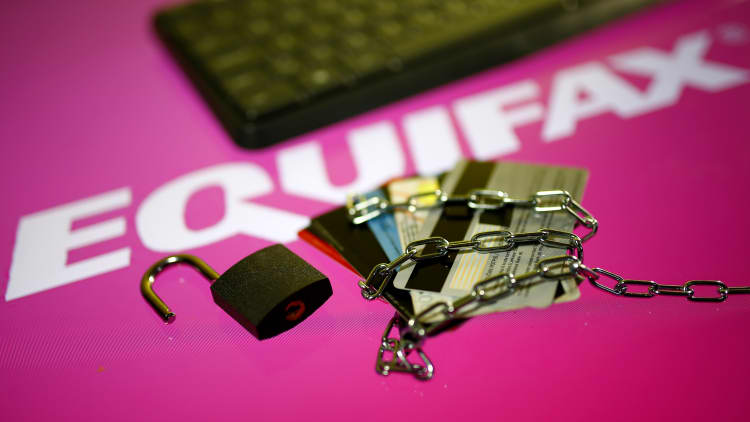The next time you get home on a Friday night and find you've left your debit or credit card at the bar, don't worry. More and more, banks are letting customers temporarily lock their accounts.
Amid headlines of the Equifax data breach and other hacking attacks, more people are worried about the security of their financial information. In response, a growing number of financial instiutions are allowing users to instantly "freeze" their accounts, if they spot suspicious activity or just can't find their debit or credit card.
"This is an increasing trend, to provide this type of empowerment to customers," said Elyse Lesley, managing director at Citi.
This month, Citi debuted a feature called "Quick Lock," whereby debit card customers can log into Citi's app, go to Citi's website or call the bank to make their card instantly stop accepting new charges. Pending or recurring charges will still be approved. Citi already had this feature available for credit cards.
Other companies such as Bank of America and USAA also offer an instant lock feature.
Once you find your card, it's just as easy to unlock your account. If you don't, and you suspect you're a victim of identity theft, there might be something else you want to lock: your credit file. This ensures that another person cannot apply for credit under your name. You can do this on Equifax, Experian and TransUnion, the three largest credit-reporting companies.
You will have to answer several questions to confirm your identity, and then you'll be given a PIN number which will allow you to freeze and unfreeze your credit report. It generally costs between $3 and $10 to freeze your credit at each company, according to Experian. There are also charges for additional freezes and unfreezes. In cases of identity theft, these fees generally are waived.

In addition to the lock, you should also tell your bank as soon as you can that you've lost your credit or debit card, according to the Consumer Financial Protection Bureau. As long as you notify your bank or credit union within two business days, you will not be responsible for charges over $50. With a debit card, if you wait longer than two days, you could be responsible for up to $500 in unauthorized charges.
Since Citi launched their "Quick Lock" feature for debit cards, they've had some 1,000 lock transactions a day.
"There's a pent up demand to have this kind of control of your finances," Lesley said.


